As the end of the financial year (EOFY) approaches, you may be starting to think about tax time and what you can do to prepare to make the most of your return. While it’s always best to talk with a tax professional, we’ve compiled a checklist to help get you started:
Prepare your documentation
Gathering all relevant financial documents is crucial for accurately reporting your income and deductions. This includes:
- PAYG summaries: These documents outline the income you’ve earned and the taxes withheld by your employer throughout the year.
- Investment statements: Statements from bank accounts, shares, managed funds, and other investments provide details of dividends, interest, and capital gains.
- Receipts for work-related expenses: Keep receipts for expenses incurred while performing your job, such as travel, uniforms, education, and home office expenses.
- Any additional sources of income or deductions, such as rental income, charitable donations or education and training expenses.
Work out your sources of income
Work out the different types of income you’ve earned throughout the financial year. Income is not just limited to your salary or wage and could also include:
- Dividends from investments
- Rental income from properties
- Capital gains from the sale of assets (such as investment properties, shares and crypto)
- Government payments such as pensions and allowances
Determine eligible deductions
Make a list of the expenses you have incurred over the past financial year that have not been reimbursed. If you’re stuck on what this might include, the Australian Taxation Office (ATO) lists the types of deductions you can claim and details around each of these. Common deductions include:
- Investment-related expenses (such as property management fees and maintenance costs)
- Charitable donations and gifts
- Professional memberships and union fees
- Tools, computers, stationary and internet
- Education and training courses
- Uniforms and protective equipment
- Transport and travel related to work
- Expenses to manage your tax
Organise any landlord information
If you’re a landlord, gather all relevant information regarding your rental property, including rental income, expenses, property management fees, insurance and maintenance.
Optimise your superannuation
Chat to your accountant or tax professional about whether making salary sacrifice contributions to your superannuation fund is something you should consider to reduce your taxable income.
Salary sacrifice is where you choose to reduce or 'sacrifice' part of your before-tax salary and add it directly into your super account. One of the advantages of salary sacrificing into superannuation is the potential for tax savings as most people generally pay more tax on their income than they do on salary sacrifice contributions. By redirecting part of your pre-tax salary directly into your super fund, you may pay less income tax while also boosting your super savings.
Understand the Medicare Levy Surcharge:
The Medicare Levy Surcharge (MLS) is an additional tax paid (on top of the 2% levy) by those who don't have Private Hospital Cover and are considered high income earners.
The MLS aims to encourage those higher income earners to use the private hospital system in order to reduce demand on the public system. If you don’t currently have private hospital cover, you can check whether you’re liable to pay the surcharge based on your income by reviewing the income thresholds and rates on the Australian Taxation Office website.
Seek Professional Advice
If you’re unsure about any aspect of your tax obligations or potential deductions, seek advice from a qualified tax professional or accountant. They can provide personalised guidance based on your financial situation and help you navigate rules and regulations.
Plan for the future
The EOFY is when you’re likely going to start thinking about what you’d like to do with any tax refund you might get. Rather than being tempted to spend it, think of it as a little bonus you can use to help boost your financial situation.
Consider whether you have any debts that need paying off, such as credit cards or personal loans. Getting rid of high-interest debts, or at least paying them down, will help reduce your repayments and give you more freedom with your money.
Another option is to grow your retirement savings by contributing the your tax refund to your super fund or choosing to invest your money in a term deposit. Putting some of your refund into savings can also give you a safety net for any unexpected expenses that might pop up down the track.
Find out more about Auswide Bank saving accounts and term deposits. Or, check out our article ‘Term deposit vs savings account: what’s the difference?’.
Auswide Bank Ltd ABN 40 087 652 060, AFSL No. 239686. This information provides general advice only. We do not provide advice based on any consideration of your personal objectives, needs or circumstances.

